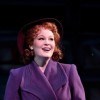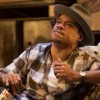![Best Musical Theatre Epic Songs - Or Musical Soliloquys_550 [i_1768] Best Musical Theatre Epic Songs - Or Musical Soliloquys_550](http://www.actorhub.co.uk/wp-content/uploads/2014/01/Best-Musical-Theatre-Epic-Songs-Or-Musical-Soliloquys_550.jpg)
Photo Credit: SpokaneFocus via cc
Every good musical has it’s ’11 o’clock’ number – an epic song for the lead role where they journey through a number of emotions and the song normally goes through different musical sections. The song is normally near the end of the show which is where it gets it name. A Broadway show would traditionally begin at 8.30pm and so this big showstopper would occur at around 11pm.
These songs I have chosen for this list are not necessarily the songs which come at “11pm” – but they are epic solo songs for leading characters in shows. I call them ‘Musical Soliloquy’s’ because they come close to being dramatical soliloquy’s. A soliloquy from Latin solo “to oneself” and loquor “I talk” is a device often used in drama when a character speaks to himself or herself, relating thoughts and feelings, thereby also sharing them with the audience. These songs often signify a moment of revelation for the character or a change of heart. These characters run the gamut of emotions through these big numbers.
These song’s are huge numbers and really need good acting to portray the emotional changes occurring during the numbers, they will also require terrific singing ability as the musical changes in tempo, rhythm and tune throughout these songs are many – this is why these are worth considering for auditions, but especially good for using in a drama school showcase or solo concert.
‘Epic Songs’ or ‘Sung Soliloquy’s’ from Musical Theatre
Watch the videos and listen to these wonderful songs. If you want to sing it for an audition or showcase then please read the script or watch the entire show. Get an understanding of the character and situation. Approaching a song as an acting piece first let’s you concentrate on character and story befoire worrying about the notes.
Click on title to view the video
Click on image to buy from Amazon
Click on title to view the video
Click on image to buy from Amazon
-
At The Fountain (click to view video)
Sweet Smell of SuccessSweet Smell of Success is a musical based on the 1957 movie of the same name telling the story of the powerful newspaper columnist J J Hunsecker and how he uses his connections to ruin the life of a man who he deems inappropriate for a relationship with his siter.Sidney Falcone a struggling press agent has met JJ’s sister Susan, Susan is hiding her real relationship from her brother JJ and introduces Sidney as her new “partner in her acting class”. JJ appears to take Sidney under his wing and befriend him. He buys him a new suit, get’s Sidney’s girlfriend a fancy job and introduces Sidney to the movers and shakers of NYC. JJ gets Sidney clients, and urges his new friend to “keep the ‘O’ and change his name to Falco.” Sidney can’t believe his luck, he has the life he has always dreamed of and he sings ‘At The Fountain’“Yes, go with your gut and your heart,
It’s time to tear through that door,
It’s time now to soar,
So let my life story start.” -
Soliloquoy (click to view video)
CarouselCarousel was the second musical by the team Rogers and Hammerstein. The story revolves around carousel barker Billy Bigelow, whose romance with millworker Julie Jordan comes at the price of both their jobs. He attempts a robbery to provide for Julie and their unborn child; after it goes wrong, he is given a chance to make things right.When Julie has announced her pregnancy to Billy, he is overwhelmed with happiness. He imagines all the fun he will have with his son, Bill Jr, then he realises the child could be a girl, and reflects soberly on the duties he will have being a father to a girl. All of this reflection is done alone on stage in the epic musical song ‘Soliloquy’The song is seven and a hlaf minutes long! And through it Billy daydreams happilly, then is horrified, then disappointed, then tender, and then motivated. It is a huge song for any singer and is done well can be a tour de force. It is the closest I think musical theatre gets to having an aria.Interestingly when Sinatra released ‘Soliloquy’ as a single the song was not complete on Side A it had to continue on side B.“I-i got to get ready before she comes!
I got to make certain that she
Won’t be dragged up in slums
With a lot o’ bums like me” -
Twelve Children (click to view video)
Dessa RoseDessa Rose is set in 1847 and tells the story of an unlikely friendship between an abandoned southern belle, Ruth, and a rebellious slave girl, Dessa Rose, who is escaping the repressive Deep South. The story deals with their pride and perseverance as together they try to fight slavery.Dessa Rose a young, pregnent slave has attacked her master for murdering the father of her child she has been sentenced to be hung once her child is born and sold as property. She escapes her capture and has made her way to an isolated farm owned by Ruth who is hiding escaped slaves.Dessa gives birth to a daughter and sings this song to the baby telling her their family history and promising to give her a name when they finally flee the South.A beautiful song. -
Brides Lament (click to view video)
The Drowsy ChaperoneThe Drowsy Chaperone is ‘a musical about a musical’. It revolves around a musical theatre fan’s obsession with a show from the 1920’s called “The Drowsy Chaperone”. He listens to his LP recording of the show and the characters come to life in his apartment.The show within the show is the story of Janet Van De Graff and her upcoming wedding to the debonair Robert Martin. This story gets mixed up with gangsters, a maniacal Broadway producer and a ‘drowsy chaperone’. The Brides Lament is sung by Janet when she dreams of her lost romance and her decision to return to the stage. It is a big, funny, show-offy number with a wonderful dream sequence and some hilarious dancing monkeys!Janet is attractive, vivacious, with an outgoing personality – she adores being the centre of attention and is a consummate 1920s starlet – a gem of a role for any leading lady.“I’m Janet, Janet Van De Graaff
Ain’t no nail that I can’t hammer
Why give up a life of glamour” -
Old Maid (click to view video)
110 In The ShadeThe story of ‘110 in the Shade’ is based on a 1954 film The Rainmaker. It tells the story of LIzzie Curry a spinster living on a ranch in the American southwest and her relationships with the men in her life.The song ‘Old Maid’ comes at the end of Act One. Lizzie’s father and brothers have tried to set her up with the local sheriff, but her honesty has driven him away. Her brother Noah insists that Lizzie must accept that she will end up alone. She is slone, upset and frightened and sings of her terror for her lonely future.“Always being one.
Never being two.
Re-arrange the furniture,
There’s nothing else to do.
Keep an empty house.
Watch your brothers wed.
Dream an empty dream at night
Upon an empty bed.” -
Lot’s Wife (click to view video)
Caroline Or ChangeCaroline or Change is a musical by Tony Kushner and Jeanine Tesori which combines blues, motown, folk, classical and Jewish klezmer music. It has run on Broadway and in London.The musical deals with the American civil rights movement in 1963 in Louisana, the time of the assasintaion of JFK. Caroline is a black maid for a Jewish family and the musical follows her life and relationship with the family’s young son Noah, with whom she has a strong connection.‘Lot’s Wife’ is sung by Caroline towards the end of the show as she beg’s God’s forgiveness for keeping some money she had found in Noah’s trousers when doing the laundry and all the bad it has caused, it caused her hatefulness to come out and it made her into a person she didn’t want to become. She asks God to make her not want anything anymore, so that she can never be evil again.“Murder me God down in that basement,
murder my dreams so I stop wantin,
murder my hope of him returnin,
strangle the pride that make me crazy!” -
Fable (click to view video)
Light in the PiazzaLight in the PIazza is a 2003 musical by Adam Guettel which tells the story of Margaret Johnson a wealthy Southern woman and her relationship with her emotionally stalled daughter Clara, whilst they spend a summer in Italy in the 1950s.The entire score is more classical and operatic than a lot of recent musicals which are probably considered pop or rock in sound. The Light in the Piazza has unexpected shifts in harmony and extended melodic structures, it is heavily orchestrated and is bilingual.Fable is sung right at the very end of the show by Margaret. She has given Clara her blessing to marry and is left alone on stage and opens up about her repressed doubts and yearnings about love and realises that the mere chance of love should outweigh all of the terrible risks she has associated with it.The song is beautiful and powerful“For the arms you could fall into forever
For the joy that you thought you’d never know
For here at last away you go
To a man who looks for you” -
Glitter and Be Gay (click to view video)
CandideCandide is a musical which is probably more of an operetta than it is traditional musical theatre. It is based on the novella by Voltaire. It is a long, tangled and epic plot with the hero Candide searching for the ‘best of all possible worlds’Candide beleives that Cunegonda, his betrothed, is dead and has set out on a journey of discovery. Cunegonde turns up alive in Paris, being supported by a welathy lover living in the house of a Marquis and a Sultan. She is being aided by an Old Lady who is serving as her governess. Cunegonda draps herself in her jewels and sings ‘Glitter and Be Gay’The song is brilliant fun, Cunegonda is bemoaning her lost purity, largely because she feels that she ought to do so, and is trying to convince herself that her glee and delight in jewelry is a sign of character when faced with adversity rather than a sign that she has always liked pretty, shiny things!If ‘Soliloquy’ is a musical theatre aria for a male singer, then ‘Glitter and Be Gay’ is a musical theatre aria for a soprano.“And yet of course I rather like to revel, Ha ha!
I have no strong objection to champagne, Ha ha!
My wardrobe is expensive as the devil, Ha ha!” -
Roses Turn (click to view video)
GypsyGypsy by Jule Styne with lyrics by Sondheim is loosely based on the memoirs of Gypsy Rose Lee the famous striptease artist.The stroy focuses on Gypsy’s mother Rose whose name is now synoymous with being the ultimate pushy showbiz mother, Toddlers, Tiaras and Tantrums has nothing no Rose! The story follows the dreams and efforts of Rose to raise her two daughters to perform on stage.By the end of the show the girls have grown up. Rose’s daughter June has run away and Louise her other daughter, all grown up, has been pushed in to perform as a striptease artist at a burlesque house. She has become a huge burlesque star and no longer needs her mother, she is now the sophisticated Gypsy Rose Lee.Rose relaises she is alone, she has lost her lover Herbie, her daughter June and now she has lost Louise too. She feels sad, useless and bitter and sings ‘Rose’s Turn’, she asks ‘Why Did I Do It, What Did it Get Me’. Her unrequited dreams of stardom and her personal demons surface. She fantasizes about her own lit-up runway and cheering audience, and finally admits “I did it for me.”“One quick look as each of ’em leaves you
All your life and what does it get you?
Thanks a lot and out with the garbage
They take bows and you’re battin’ zero”
Be bold, daring and creative and you can’t go wrong.
Musical Theatre Actor Hub Advice











![Audition Duets for Men and Woman [p_778/i_945] Audition Male Female Duet Songs for Musical Theatre](http://www.actorhub.co.uk/wp-content/uploads/2013/07/Audition-Male-Female-Duet-Songs-for-Musical-Theatre-100x100.jpg)
![Audition Songs for Tenors [p_747/i_934] Tenor Songs For Musical Theatre Auditions_thumb](http://www.actorhub.co.uk/wp-content/uploads/2013/07/Tenor-Songs-For-Musical-Theatre-Auditions_thumb-100x100.jpg)
![Audition Songs from Disney Films [p_1806/i_1808] Great Audition Songs from Animated Films_240](http://www.actorhub.co.uk/wp-content/uploads/2014/01/Great-Audition-Songs-from-Animated-Films_240-100x100.jpg)
![Jason Robert Brown Audition Songs (Men) [p_576/i_1688] Jason Robert Brown Audition Songs for Men_240](http://www.actorhub.co.uk/wp-content/uploads/2013/12/Jason-Robert-Brown-Audition-Songs-for-Men_240-100x100.jpg)
![Popular audition songs for Men [p_2280/i_2282] The most popular audition songs for Men_240](http://www.actorhub.co.uk/wp-content/uploads/2014/10/The-most-popular-audition-songs-for-Men_240-100x100.jpg)

![Mezzo Soprano Audition Songs [p_1657/i_1659] Musical Theatre Audition Songs - Choices for Mezzo Soprano_240](http://www.actorhub.co.uk/wp-content/uploads/2013/12/Musical-Theatre-Audition-Songs-Choices-for-Mezzo-Soprano_240-100x100.jpg)
![Schwartz Songs for Auditions [p_785/i_1893] stephen_schwartz_240](http://www.actorhub.co.uk/wp-content/uploads/2014/02/stephen_schwartz_240-100x100.jpg)
![Audition Songs - Rosser & Sohne [p_2141/i_2143] rosser_sohne](http://www.actorhub.co.uk/wp-content/uploads/2014/07/rosser_sohne-100x100.jpg)
![The Best Patter Songs [p_1705/i_1707] The best Patter Songs for musical theatre auditions, showcases and concerts_240](http://www.actorhub.co.uk/wp-content/uploads/2013/12/The-best-Patter-Songs-for-musical-theatre-auditions-showcases-and-concerts_240-100x100.jpg)
![Sondheim ballads for auditions. [p_1569/i_1571] Top Sondheim Songs for Musical Theatre Auditions - Ballads_240](http://www.actorhub.co.uk/wp-content/uploads/2013/11/Top-Sondheim-Songs-for-Musical-Theatre-Auditions-Ballads_240-100x100.jpg)
![Our Favourite Sondheim Songs [p_1566/i_1567] Sondheim_Stencil_240](http://www.actorhub.co.uk/wp-content/uploads/2013/11/Sondheim_Stencil_240-100x100.jpg)
![Pantomime Audition Songs [p_342/i_346] panto_dame_240](http://www.actorhub.co.uk/wp-content/uploads/2012/08/panto_dame_240-100x100.jpg)
![Musical Theatre More Male Female Duets [p_781/i_947] More Duet Songs for Musical Theatre and Showcase Auditions thumb](http://www.actorhub.co.uk/wp-content/uploads/2013/07/More-Duet-Songs-for-Musical-Theatre-and-Showcase-Auditions-thumb-100x100.jpg)
![Five Audition Songs for Men [p_338/i_336] Best Musical Theatre Audition Songs for Men](http://www.actorhub.co.uk/wp-content/uploads/2012/08/Top-Five-Musical-Theatre-Audition-Songs-for-Men_thumb-100x100.jpg)
![Funny Female Audition Songs [p_1911/i_1913] Funny or Comedy Musical Theatre Audition Songs for Females_240](http://www.actorhub.co.uk/wp-content/uploads/2014/03/Funny-or-Comedy-Musical-Theatre-Audition-Songs-for-Females_240-100x100.jpg)
![Musical Theatre Audition Songs for Men [p_637/i_943] Popular Musical Theatre Audition Songs for Men Thumb](http://www.actorhub.co.uk/wp-content/uploads/2013/07/Popular-Musical-Theatre-Audition-Songs-for-Men-Thumb-100x100.jpg)
![Top Audition Songs For Women [p_332/i_330] Best United Kingdom Musical Theatre Audition Songs For Women](http://www.actorhub.co.uk/wp-content/uploads/2012/08/Top-Five-Musical-Theatre-Audition-Songs-For-Women_thumb-100x100.jpg)
![Rules for audition song choice [p_2268/i_2269] The Actor Hub rules for choosing your audition song_240](http://www.actorhub.co.uk/wp-content/uploads/2014/10/The-Actor-Hub-rules-for-choosing-your-audition-song_240-100x100.jpg)
![Alto Audition Songs [p_694/i_936] Alto Songs For Musical Theatre Auditions_thumb](http://www.actorhub.co.uk/wp-content/uploads/2013/07/Alto-Songs-For-Musical-Theatre-Auditions_thumb-100x100.jpg)
!['I can't sing' - audition songs [p_1269/i_1271] songs for actors who can't sing_240](http://www.actorhub.co.uk/wp-content/uploads/2013/09/songs-for-actors-who-cant-sing_240-100x100.jpg)
![Best Soprano Songs for Auditions [p_687/i_940] Soprano Songs For Musical Theatre Auditions_thumb](http://www.actorhub.co.uk/wp-content/uploads/2013/07/Soprano-Songs-For-Musical-Theatre-Auditions_thumb-100x100.jpg)
![Musical Theatre Songs for Character Actors [p_625/i_938] Best Musical Theatre Audition Songs for Character Actors_Thumbnail](http://www.actorhub.co.uk/wp-content/uploads/2013/07/Best-Musical-Theatre-Audition-Songs-for-Character-Actors_Thumbnail-100x100.jpg)
![Musical Theatre Female Duets [p_2531/i_2533] The Best Female Duets from Musical Theatre_240](http://www.actorhub.co.uk/wp-content/uploads/2015/05/The-Best-Female-Duets-from-Musical-Theatre_240-100x100.jpg)

![Popular Mezzo-Soprano Audition Songs [p_2276/i_2278] The Most Popular Mezzo-Soprano Audition Songs_240](http://www.actorhub.co.uk/wp-content/uploads/2014/10/The-Most-Popular-Mezzo-Soprano-Audition-Songs_240-100x100.jpg)
![Unusual Audition Songs [p_1339/i_1341] audition songs from new composers and new musicals_240](http://www.actorhub.co.uk/wp-content/uploads/2013/10/audition-songs-from-new-composers-and-new-musicals_240-100x100.jpg)
![Audition Songs Chosen by Jason Carr [p_2132/i_2136] jasoncarr_240](http://www.actorhub.co.uk/wp-content/uploads/2014/07/jasoncarr_240-100x100.jpg)
![Jason Robert Brown Audition Songs (Women) [p_579/i_1690] Jason Robert Brown Audition Songs for Women_240](http://www.actorhub.co.uk/wp-content/uploads/2013/12/Jason-Robert-Brown-Audition-Songs-for-Women_240-100x100.jpg)

![newsletter_application [p_2157/i_2161] newsletter_application](http://www.actorhub.co.uk/wp-content/uploads/2014/07/newsletter_application.jpg)
![red_texture_write_for_us [p_2221/i_2222] red_texture_write_for_us](http://www.actorhub.co.uk/wp-content/uploads/2014/09/red_texture_write_for_us.jpg)
![550x240_advertise_here_ad [p_19/i_1902] 550x240_advertise_here_ad](http://www.actorhub.co.uk/wp-content/uploads/2014/02/550x240_advertise_here_ad.jpg)



![What you won't hear in the theatre [p_1221/i_1229] Never said in the theatre_240](http://www.actorhub.co.uk/wp-content/uploads/2013/09/Never-said-in-the-theatre_240-100x100.jpg)
![An Actor's Apology [p_1548/i_1550] Being An Actor - An Apology_240](http://www.actorhub.co.uk/wp-content/uploads/2013/11/Being-An-Actor-An-Apology_240-100x100.jpg)
![Showreel Secrets [p_701/i_867] What No-one Tells You About Showreels Thumb](http://www.actorhub.co.uk/wp-content/uploads/2013/07/What-No-one-Tells-You-About-Showreels-Thumb1-100x100.jpg)
![Orson Welles on Acting [p_1716/i_1717] Find Your Truth - Acting Advice from Orson Welles](http://www.actorhub.co.uk/wp-content/uploads/2013/12/Find-Your-Truth-Acting-Advice-from-Orson-Welles-100x100.jpg)
![Audition Songs Chosen by Will Van Dyke [p_2137/i_2138] will_van_dyke_240](http://www.actorhub.co.uk/wp-content/uploads/2014/07/will_van_dyke_240-100x100.jpg)
![10 tips for being happy [p_558/i_560] The Actor Hub Ten Steps To Becoming a Happier Actor Thumbnail Image](http://www.actorhub.co.uk/wp-content/uploads/2012/10/Ten-Steps-To-Becoming-a-Happier-Actor-Thumb-100x100.jpg)
![2013s Best Musical Theatre Cast Recordings [p_1626/i_1627] The Best Broadway Cast Recordings of 2013_240](http://www.actorhub.co.uk/wp-content/uploads/2013/12/The-Best-Broadway-Cast-Recordings-of-2013_240-100x100.jpg)
![Advert auditions - tips for actors [p_1929/i_1931] How to act at a commercial casting - audition tips for actors_240](http://www.actorhub.co.uk/wp-content/uploads/2014/04/How-to-act-at-a-commercial-casting-audition-tips-for-actors_240-100x100.jpg)
![Drama school student accommodation [p_589/i_873] 10tips_240](http://www.actorhub.co.uk/wp-content/uploads/2013/07/10tips_240-100x100.jpg)
![More of the best drama school audition songs [p_1277/i_1279] more great audition songs for musical theatre and drama school auditions](http://www.actorhub.co.uk/wp-content/uploads/2013/09/more-great-audition-songs_240-100x100.jpg)